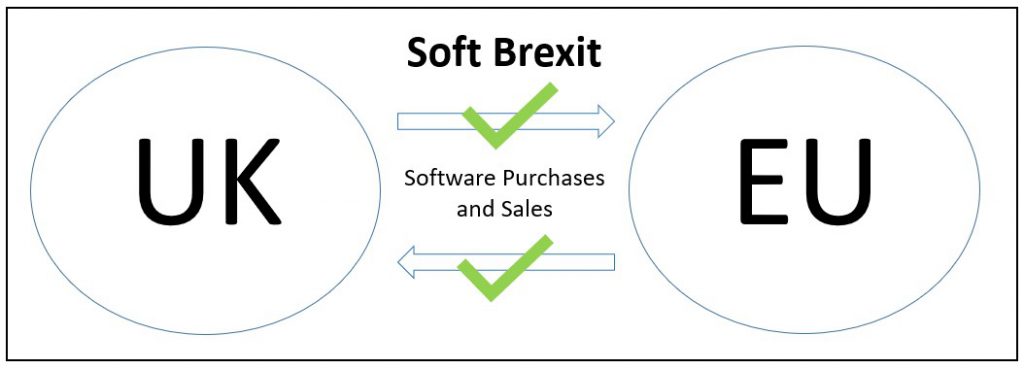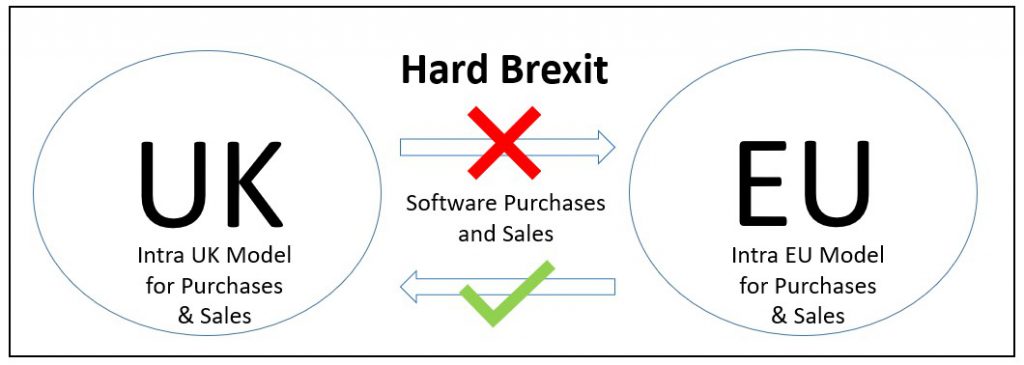Brexit & Secondary Software: What’s the impact?
This article was written by Rich Gibbons, ITAM Review, and Noel Unwin, Discount Licensing.
Following the decision made by the United Kingdom (UK) to leave the European Union (EU) on 31st January 2020, negotiations between the UK Government and the EU continue.

The ‘transitional’ period is currently due to end on 31st December 2020 and whilst there is still uncertainty from the UK Government and the EU regarding the final ‘agreement’, the most important point to note is that any changes made after 31st December 2020 will have no impact on previous pre-owned software transactions through UK software companies that have clients located within the EU or the UK:
“Intellectual property rights which were exhausted both in the Union (EU) and in the United Kingdom before the end of the transition period under the conditions provided for by Union law shall remain exhausted both in the Union (EU) and in the United Kingdom” : Article 61 of the “Transition Agreement”
[SOURCE: Treaty Series No. 3 (2020) Agreement on the Withdrawal of the United Kingdom of Great Britain and Northern Ireland from the European Union and the European Atomic Energy Community].
Scenario 1: An agreement is made
If a Brexit agreement is made between the EU and the UK (UK remains in the Customs Union, or agrees a new trade deal) as currently intended by both parties, we will have what is known as a “Soft Brexit”. In this scenario, it is anticipated that there will be no adverse effect on the way secondary software can be purchased and sold between the EU and the UK.

Whilst it is recognised that several business areas could be impacted by changes made after the end of the transitional period, secondary software licence companies can implement plans to ensure continuity of their business within the EU and the UK in case of a worst-case scenario known as “Hard Brexit” (no agreement); if such plans are implemented, it will be business as usual for clients whether they are based within the EU and the UK.
Scenario 2: No agreement
Even with a worst-case “Hard Brexit” scenario, secondary software licence companies will be able to continue servicing EU clients with an ‘intra’ EU model by facilitating transactions through one of their EU company registered offices. Furthermore, the UK Government has already provided a ‘Technical Note’ stating that it will continue to recognise the ‘Exhaustion of Rights’ principle, whereby pre-owned software, that was originally ‘put into use’ within the EU, can flow freely from the EU to the UK [see current “no deal” guidance from the UK Government].

It is of course important to continue to adapt to whatever changes are made in order to eliminate any disruption to the secondary software licence markets after the transitional period ends, so as to ensure trading will continue unaffected for clients whether they may be located in the EU or the UK.
Conclusion
Based on the current understanding, UK companies will still be able to buy used software from the EU – even in the event of a “hard” Brexit. This means, if your primary use of the secondary software market is as a buyer, you shouldn’t see much change. However, if selling is your primary aim and you’re UK based, your potential pool of customers will get dramatically smaller should Britain end the transition period without an agreement.
Evaluate your plans around secondary software and see if any timelines or budgets may need to be changed – or at least “what-if” modelled – to take into account these potential changes.
About Rich Gibbons
A Northerner renowned for his shirts, Rich is a big Hip-Hop head, and loves travel, football in general (specifically MUFC), baseball, Marvel, and reading as many books as possible. Finding ways to combine all of these with ITAM & software licensing is always fun!
Connect with Rich on Twitter or LinkedIn.
